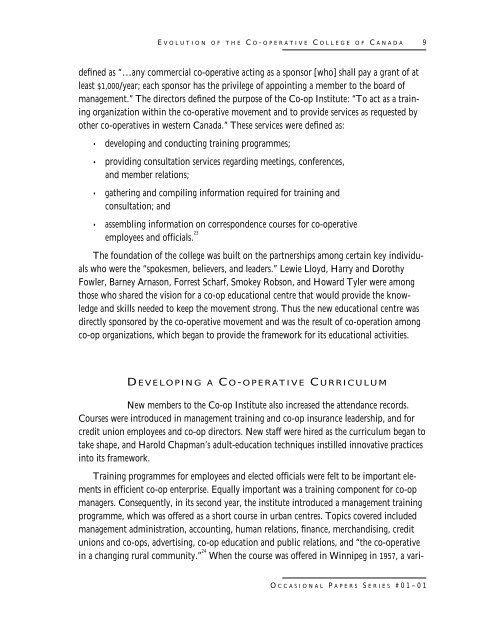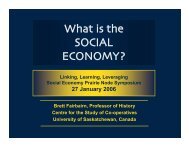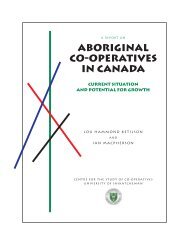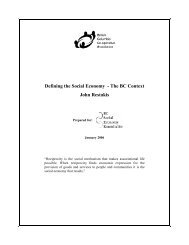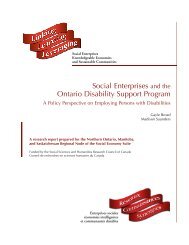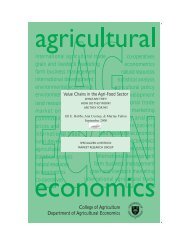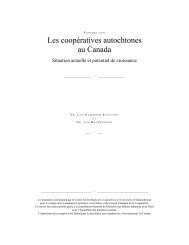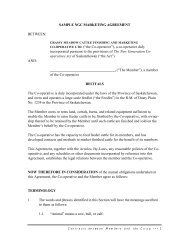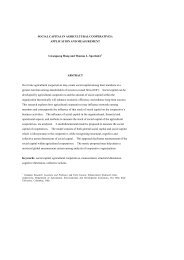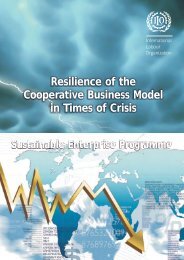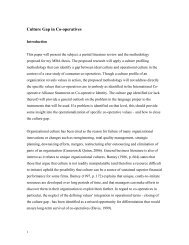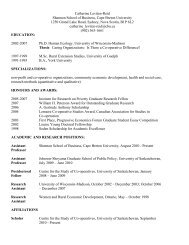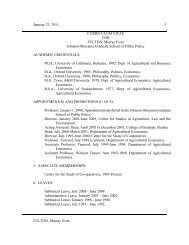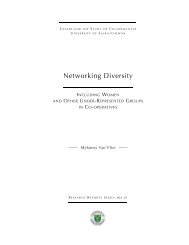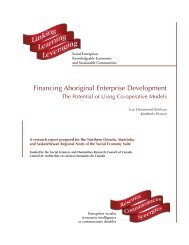Co-op College History - Centre for the Study of Co-operatives
Co-op College History - Centre for the Study of Co-operatives
Co-op College History - Centre for the Study of Co-operatives
Create successful ePaper yourself
Turn your PDF publications into a flip-book with our unique Google optimized e-Paper software.
E VOLUTION OF THE C O - OPERATIVE C OLLEGE OF C ANADA 9<br />
defined as “…any commercial co-<strong>op</strong>erative acting as a sponsor [who] shall pay a grant <strong>of</strong> at<br />
least $1,000/year; each sponsor has <strong>the</strong> privilege <strong>of</strong> appointing a member to <strong>the</strong> board <strong>of</strong><br />
management.” The directors defined <strong>the</strong> purpose <strong>of</strong> <strong>the</strong> <strong>Co</strong>-<strong>op</strong> Institute: “To act as a training<br />
organization within <strong>the</strong> co-<strong>op</strong>erative movement and to provide services as requested by<br />
o<strong>the</strong>r co-<strong>op</strong>eratives in western Canada.” These services were defined as:<br />
• devel<strong>op</strong>ing and conducting training programmes;<br />
• providing consultation services regarding meetings, conferences,<br />
and member relations;<br />
• ga<strong>the</strong>ring and compiling in<strong>for</strong>mation required <strong>for</strong> training and<br />
consultation; and<br />
• assembling in<strong>for</strong>mation on correspondence courses <strong>for</strong> co-<strong>op</strong>erative<br />
employees and <strong>of</strong>ficials. 23<br />
The foundation <strong>of</strong> <strong>the</strong> college was built on <strong>the</strong> partnerships among certain key individuals<br />
who were <strong>the</strong> “spokesmen, believers, and leaders.” Lewie Lloyd, Harry and Dorothy<br />
Fowler, Barney Arnason, Forrest Scharf, Smokey Robson, and Howard Tyler were among<br />
those who shared <strong>the</strong> vision <strong>for</strong> a co-<strong>op</strong> educational centre that would provide <strong>the</strong> knowledge<br />
and skills needed to keep <strong>the</strong> movement strong. Thus <strong>the</strong> new educational centre was<br />
directly sponsored by <strong>the</strong> co-<strong>op</strong>erative movement and was <strong>the</strong> result <strong>of</strong> co-<strong>op</strong>eration among<br />
co-<strong>op</strong> organizations, which began to provide <strong>the</strong> framework <strong>for</strong> its educational activities.<br />
D EVELOPING A C O-OPERATIVE C URRICULUM<br />
New members to <strong>the</strong> <strong>Co</strong>-<strong>op</strong> Institute also increased <strong>the</strong> attendance records.<br />
<strong>Co</strong>urses were introduced in management training and co-<strong>op</strong> insurance leadership, and <strong>for</strong><br />
credit union employees and co-<strong>op</strong> directors. New staff were hired as <strong>the</strong> curriculum began to<br />
take shape, and Harold Chapman’s adult-education techniques instilled innovative practices<br />
into its framework.<br />
Training programmes <strong>for</strong> employees and elected <strong>of</strong>ficials were felt to be important elements<br />
in efficient co-<strong>op</strong> enterprise. Equally important was a training component <strong>for</strong> co-<strong>op</strong><br />
managers. <strong>Co</strong>nsequently, in its second year, <strong>the</strong> institute introduced a management training<br />
programme, which was <strong>of</strong>fered as a short course in urban centres. T<strong>op</strong>ics covered included<br />
management administration, accounting, human relations, finance, merchandising, credit<br />
unions and co-<strong>op</strong>s, advertising, co-<strong>op</strong> education and public relations, and “<strong>the</strong> co-<strong>op</strong>erative<br />
in a changing rural community.” 24 When <strong>the</strong> course was <strong>of</strong>fered in Winnipeg in 1957, a vari-<br />
O CCASIONAL P APERS S ERIES #01–01


